“Bitter teaches the body to wake up, digest, and release.”
– Traditional Herbal Saying
The Taste We Lost – and Why We Need It Back
Bitter. The very word makes a lot of people flinch. We wrinkle our noses, push the plate away, banish the taste with something sugary. In a culture obsessed with sweetness – literal and metaphorical – bitterness has been nearly banished, which is a bit of a shame.
Once bitterness was a daily companion. Our ancestors ate wild greens, pungent roots, bitter barks. Today, we eat soft and sweet, and our digestion often suffers for it.
Bitters are more than flavor, they awaken the gut, stir the liver, remind the body that it has work to do, they are the plant world’s gentle drill sergeants – encouraging, but firm, never mean.
What Are Bitters, Really?
Bitters are any herbs or foods with a predominantly bitter flavor. But their power goes far beyond the tongue.
Here’s what happens when you taste something bitter:
- Saliva increases
- Stomach acid is stimulated
- Bile is released from the gallbladder
- Digestive enzymes kick into gear
In other words, bitters prepare the whole digestive tract to receive, process, and transform food. They prime the pump.
Bitters also help move stuckness – in body and spirit. They promote elimination, cleanse the liver, and can even help us “digest” difficult emotions like anger or stagnation. As the herbalist Guido Masé writes, bitters are “boundary plants” – they help us discern, filter, and let go.
Five Beautifully Bitter Allies
Let’s meet a few of the bitter herbs who, though often overlooked, stand quietly at the gates of healing.
1. Dandelion Root (Taraxacum officinale)
Earthy. Deep. Loyal.
Dandelion root is perhaps the most beloved of the bitters. A true liver tonic, it promotes bile flow, supports detoxification, and gently encourages elimination without harshness.
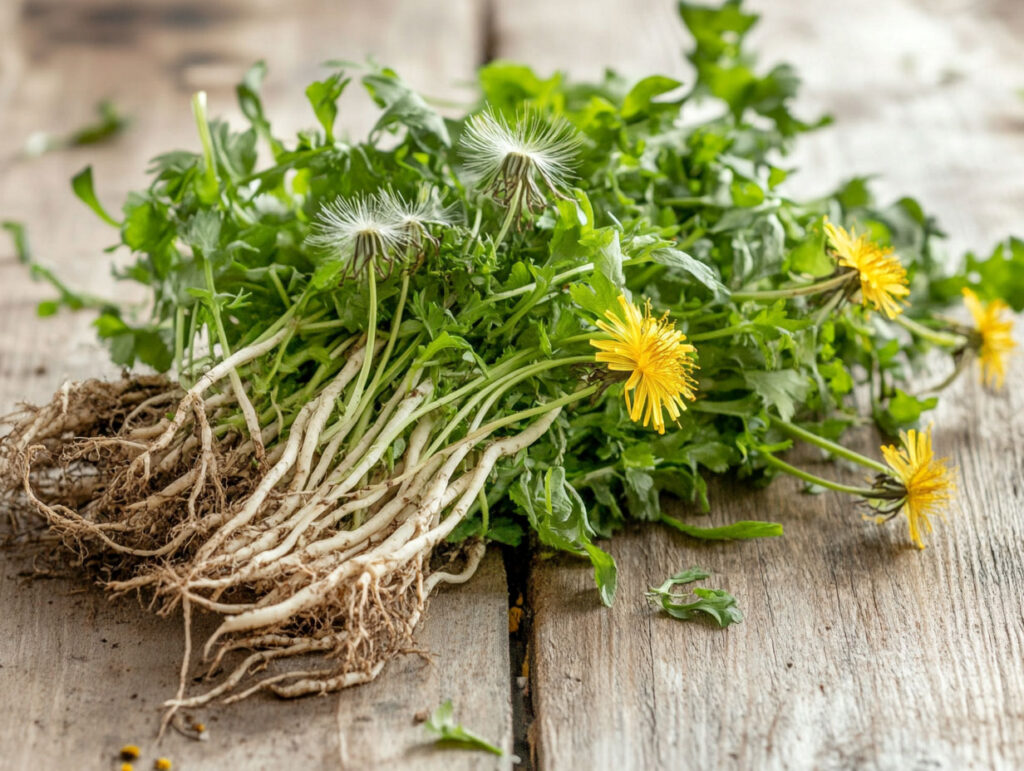
- Uses: Excellent as a tea, tincture, or roasted into a coffee-like brew.
- Energetics: Cooling and drying. Grounds excess heat or heaviness.
- Pair it with: Chicory root or burdock for a rich, earthy blend.
Folk wisdom says that dandelions grow where the earth is most compacted – breaking it open. The same may be true for us.
2. Artichoke Leaf (Cynara scolymus)
Sharp. Green. Sophisticated.
Not the soft heart – but the bitter leaf is the medicine. Artichoke leaf stimulates bile production and improves fat digestion, making it excellent for sluggishness after rich meals or emotional heaviness.
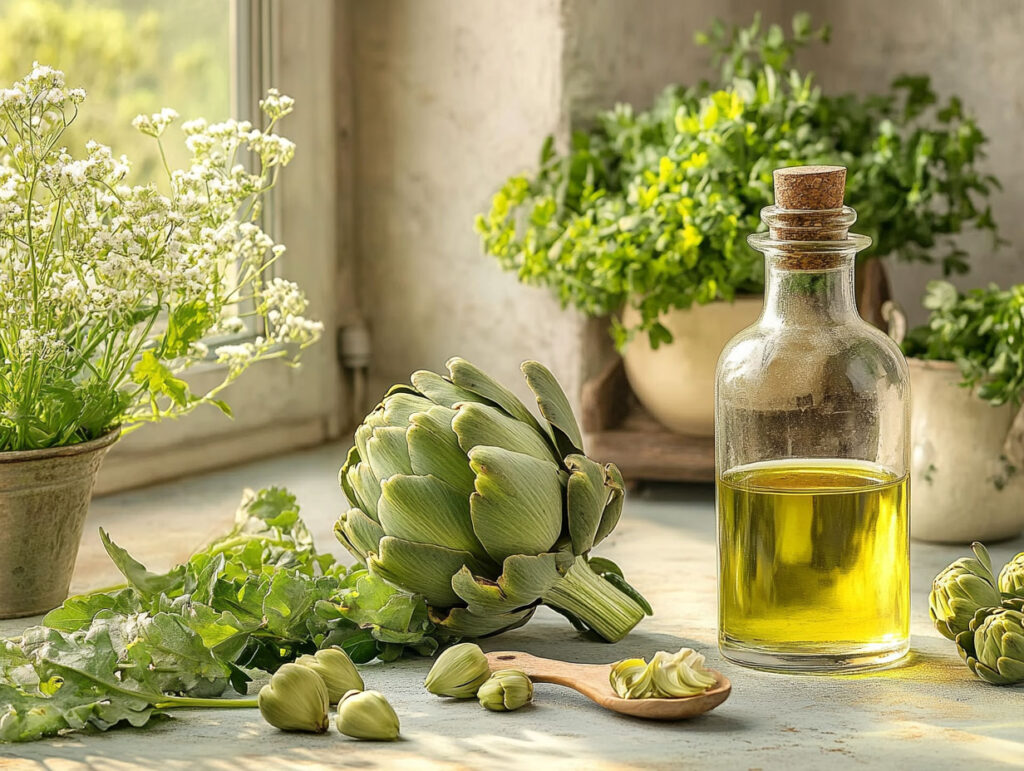
- Uses: Best as a tincture; the bitterness is too strong for tea.
- Energetics: Cooling, bitter, and stimulating.
- Pair it with: Lemon peel or peppermint to brighten the flavor and function.
3. Wormwood (Artemisia absinthium)
Witchy. Wild. Unapologetic.
Wormwood is one of the most bitter herbs in existence. It’s been used for centuries as a vermifuge (anti-parasitic), and is the famous bitter note in absinthe. In small doses, it clears fog and stirs the vital fire.
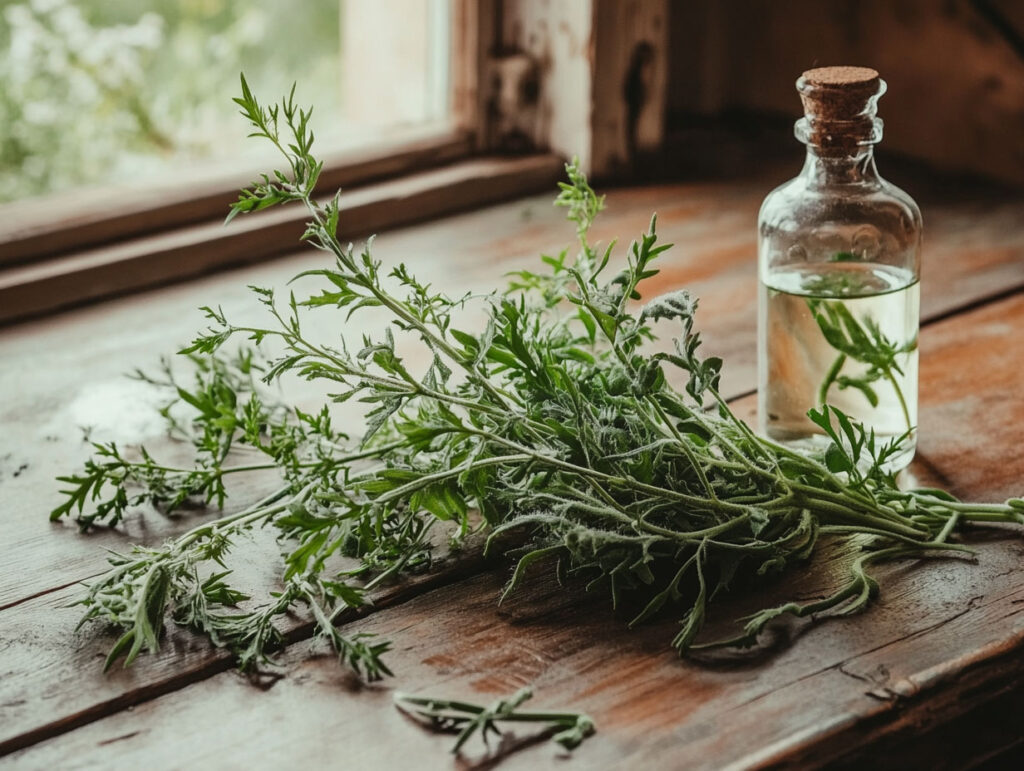
- Uses: Only in very small doses and never long-term. Tincture is best.
- Caution: Avoid during pregnancy.
- Energetics: Extremely bitter, drying, and hot. A little goes a long way.
4. Orange Peel (Citrus sinensis)
Bright. Aromatic. Balancing.
Bitters don’t always have to taste like punishment. Orange peel brings aromatic brightness to any formula, while still supporting digestion and gently nudging bile flow.
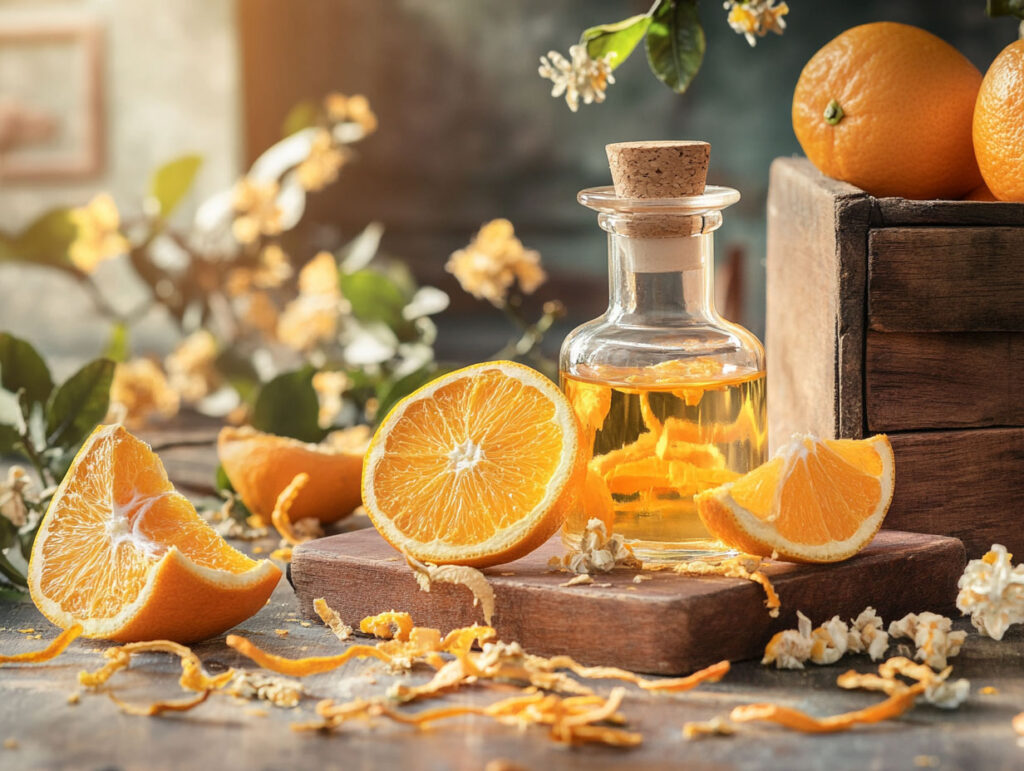
- Uses: Lovely as a tea or in homemade bitters blends.
- Energetics: Slightly warming and stimulating.
- Pair it with: Ginger, cinnamon, or gentian for a well-rounded bitters tonic.
5. Gentian Root (Gentiana lutea)
Bold. Ancient. Purely bitter.
One of the strongest bitters in the herbal world. Just a few drops is enough to awaken the whole digestive system. Gentian is not subtle – but it is effective, and deeply revered.
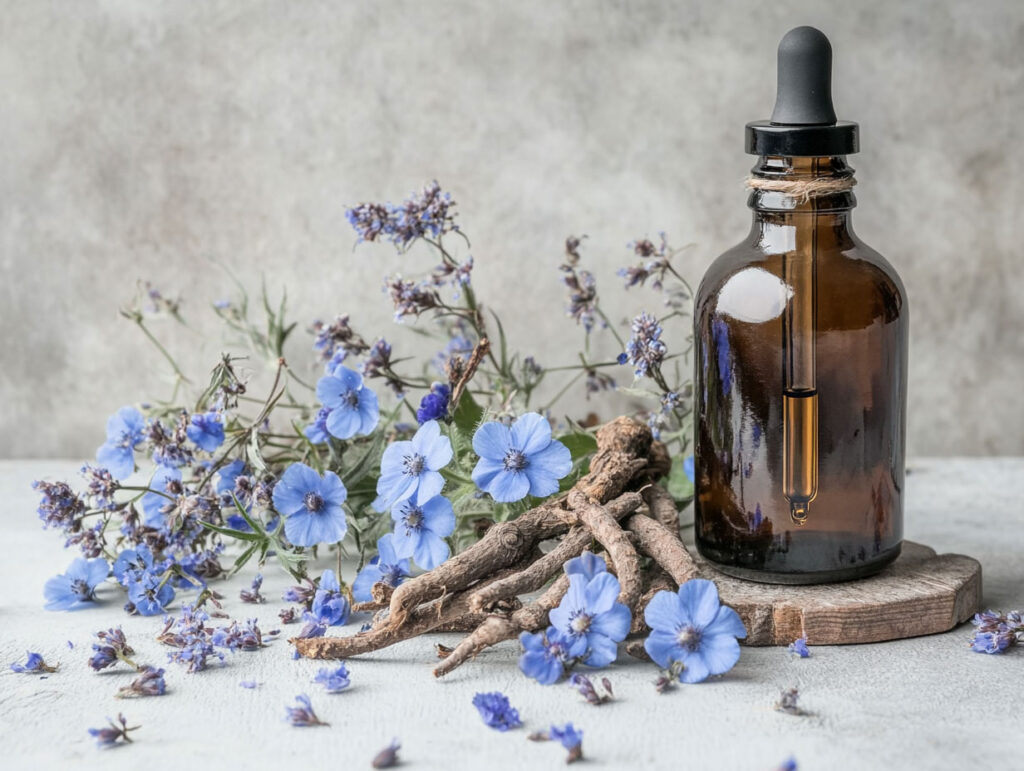
- Uses: Always in tincture form. Often blended in digestive bitters formulas.
- Caution: Avoid with ulcers or hyperacidity.
- Energetics: Cold and very drying. Combine with warming herbs if needed.
DIY Recipe: Botanical Bitters Tincture
Make your own bitters and reclaim the ritual.
Ingredients:
- 1 part dried dandelion root
- 1 part dried orange peel
- ½ part artichoke leaf
- ¼ part wormwood or gentian root (optional, potent!)
- High-proof alcohol (like vodka or brandy)
- Glass jar with lid and label
Method:
- Place the herbs in a clean jar, filling it about halfway.
- Pour alcohol over the herbs until they are completely covered.
- Cap the jar and shake gently.
- Label with date and ingredients.
- Store in a dark place and shake daily for 3 – 4 weeks.
- Strain, bottle, and store in amber glass.
How to use: Take 5 -10 drops in a little water before meals to stimulate digestion, or after meals to ease bloating and sluggishness.
Bitterness as a Metaphor
In Western culture, we often run a mile from bitterness. It’s seen as unpleasant, harsh, even a flaw of character – “a bitter person.” But what if bitterness isn’t something to avoid… but something to witness?
In herbalism, bitterness is transformative. It moves energy. It restores flow. It helps the body recognize when enough is enough, when it’s time to let go.
Emotionally, too, bitterness can mark the start of healing. It signals a turning point. A chance to digest what was, and choose what’s next.
To taste bitterness is to wake up – to our body, to our truth, to the moment.
Conclusion: Welcoming the Bitter Back
Bitters don’t pamper you, they don’t flatter, instead, they help you face what’s hard to swallow – and then move through it.
Could you welcome a little bitterness into your life – not as punishment, but as medicine?


Leave a Reply